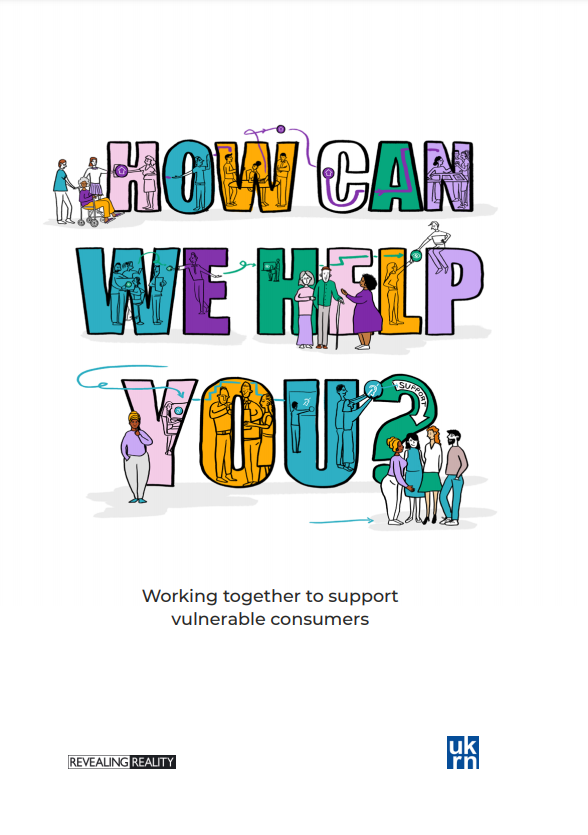UK Regulatory Network
Many of us will move through our day to day lives without needing a lot of help. If we hear the word “support”, we probably think about the kind we get from our friends or family when we’re having a tough time. But hundreds of thousands of people in the UK today are struggling, and are in need of a range of different types of support – and one day we, or those we love, might be in their shoes.
Lots of people are unaware that the companies who provide our everyday necessities – from water and energy companies, to banks and transport companies – can offer a broad range of support to those that need it most. The support can range from:
- Getting someone to come to check your meter if you’re unable
- Sending letters with braille or bigger type if you’re visually impaired
- Helping you get through an airport and onto a flight if you’re a wheelchair user
- Giving you financial advice, or even lowering your bills if you’re financially vulnerable
Many people also have ‘hidden disabilities’ like rheumatoid arthritis, where it’s not clear to the onlooker that you need support.
The vulnerable customers who are aware of and use the support on offer find it invaluable, even indispensable. It helps to make what is often a very tough and arduous day that little bit easier. However, many are missing out.
The problem
There is a significant number of vulnerable people, people who are in desperate need of support, who aren’t getting any. We spoke to people whose lives are a daily struggle. People who find it painful just to get out of bed in the morning, and struggle to go out to get the shopping. For example, Nim has fibromyalgia – a condition she describes essentially as a constant state of pain. She struggles a lot with her mobility, finding even short journeys difficult. Her mental health has also plummeted as a result of her physical state. Many people, including Nim, are often completely unaware of the kind of support they could be receiving from their different providers to help them with their everyday struggles.
If companies knew about their lives and conditions, there is plenty they could do to help. By sharing vulnerability data between providers, those who need it could receive essential support across the board without having to constantly repeat themselves.
What’s getting in the way?
The issue is, people react negatively when the concept of “data” is broached. It’s a word that strikes fear and suspicion into many people who, upon hearing it in the vicinity of the word “sharing”, jump to thoughts of Big Brother and attacks on privacy. This reaction, often based on misconceptions about the process of sharing vulnerability data, acts as a barrier to ensuring that the people who really need support are getting it.
In fact, it’s often the less vulnerable consumers who are perpetuating this fear and standing in the way. So why not address this by not using the word “data”? If the word is avoided, will the menacing associations fall to the wayside too?
We found that the more vulnerable consumers are in fact the most open to data sharing, and are keen for companies to overcome the current barriers that are stopping it from happening. So it’s vital that this initial fear is addressed and overcome, in order for the path to be cleared for those who really need it.
Moving forward
Our research was commissioned by UKRN to gauge the attitudes, both of consumers and professionals, towards data sharing – and to think about how the conversation could be moved forward in a positive direction.
In the time leading up to this research, the conversation had slightly stagnated, and had settled on the idea that customers are generally sceptical about data sharing, and that it will be tough to make it a regular and smooth process amongst different firms and providers. However, we found that there is an appetite on all levels for this issue to be resolved and for effective data sharing practices to be put in motion. Things can be improved and people’s lives can be made better – it is up to those who can facilitate change to ensure that this opportunity is not missed.
You can read the full report from our research for UKRN here

